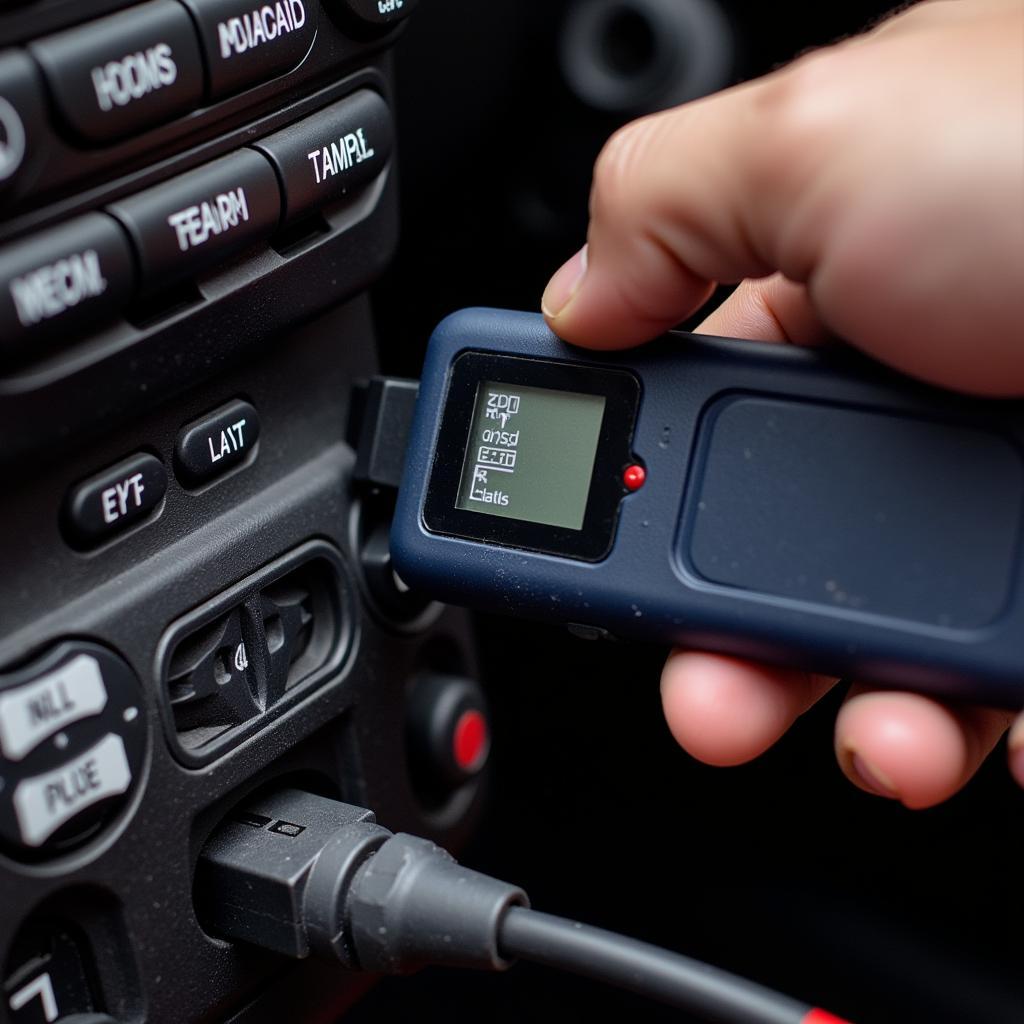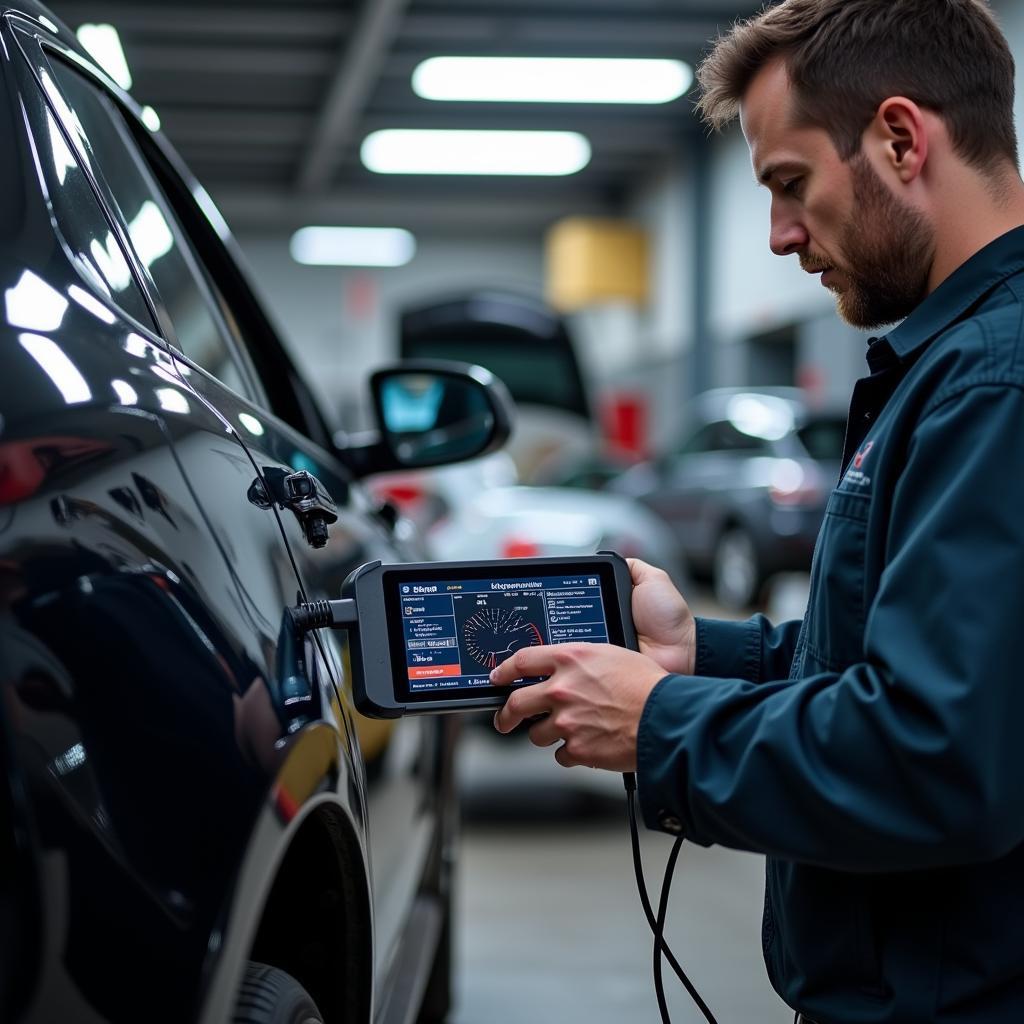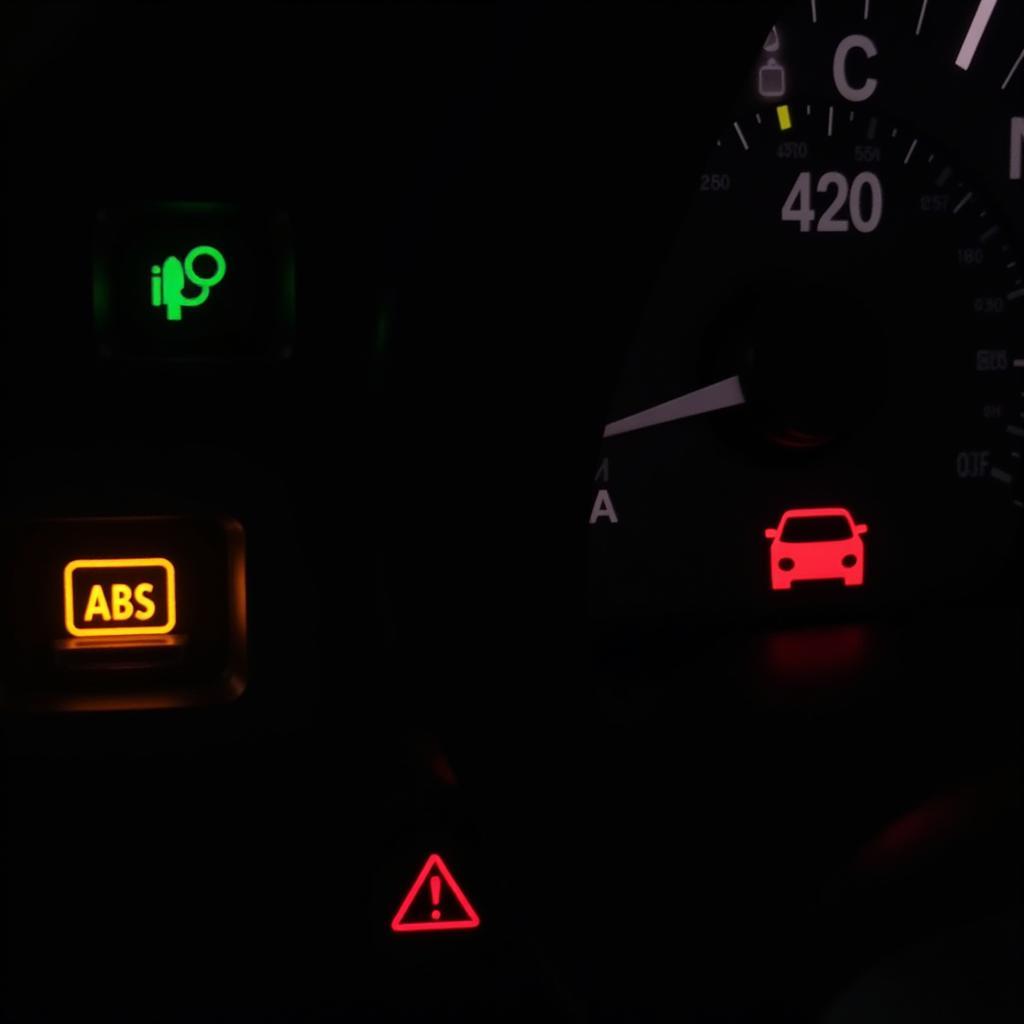Modern vehicles are technological marvels, equipped with complex systems that ensure optimal performance and safety. When something goes wrong, pinpointing the issue can feel like navigating a labyrinth of sensors, circuits, and codes. This is where Diagnostics For Car come into play, providing a lifeline for car owners and mechanics alike.
 Car Diagnostics Tools
Car Diagnostics Tools
Unveiling the Mystery: What are Car Diagnostics?
Car diagnostics refer to the process of using electronic equipment to communicate with your vehicle’s onboard computer. This computer, often referred to as the Engine Control Unit (ECU), acts as the brain of your car, constantly monitoring and controlling various systems. By accessing the ECU, specialized tools can retrieve valuable data, including:
- Diagnostic Trouble Codes (DTCs): These codes act as alerts, signaling a malfunction within a specific system.
- Freeze Frame Data: This snapshot captures the vehicle’s operating conditions at the time a fault code was stored.
- Live Data Stream: This real-time data flow allows technicians to observe the performance of various sensors and components.
The Power of Diagnostics for Car: Why It Matters
Gone are the days of relying solely on guesswork and visual inspections to diagnose car problems. Car diagnostics offer a range of benefits:
- Accurate Diagnosis: By pinpointing the root cause of issues, diagnostics eliminate unnecessary repairs and save you time and money.
- Enhanced Safety: Detecting potential problems early on ensures your vehicle remains safe and reliable on the road.
- Improved Performance: By identifying and addressing performance issues, diagnostics can help optimize your car’s fuel efficiency and overall performance.
- Increased Resale Value: A well-maintained vehicle with a documented diagnostic history can command a higher resale value.
 Mechanic Using Diagnostic Scanner
Mechanic Using Diagnostic Scanner
Types of Car Diagnostic Tools: From Basic to Advanced
The world of car diagnostics offers a spectrum of tools tailored to different needs and skill levels:
- Code Readers: These entry-level devices primarily read and clear basic DTCs, ideal for DIY enthusiasts seeking to understand basic issues.
- OBD-II Scanners: More advanced than code readers, these tools offer a wider range of functions, including viewing freeze frame data and live sensor readings.
- Professional Diagnostic Scanners: Used by mechanics and dealerships, these sophisticated tools provide comprehensive system coverage, advanced programming capabilities, and access to manufacturer-specific data.
Common Car Problems Diagnosed Through Diagnostics
Car diagnostics can identify a wide range of issues, including:
- Engine Problems: Misfires, poor fuel economy, and reduced engine power.
- Transmission Problems: Slipping gears, rough shifting, and transmission fluid leaks.
- Brake System Problems: ABS issues, brake light malfunctions, and uneven brake pad wear.
- Electrical System Problems: Battery issues, faulty sensors, and wiring problems.
- Emission System Problems: Oxygen sensor issues, catalytic converter problems, and evaporative emissions control system leaks.
 Car Dashboard Warning Lights
Car Dashboard Warning Lights
DIY or Professional: Choosing the Right Approach
While basic code readers empower car owners to address simple issues, more complex problems often require the expertise of trained technicians. Here’s a guide to help you decide:
DIY Diagnostics: Consider a DIY approach if:
- You’re comfortable with basic car maintenance.
- The issue seems minor (e.g., a check engine light triggered by a loose gas cap).
- You have a reliable code reader or OBD-II scanner.
Professional Diagnostics: Seek professional help if:
- The issue is complex or recurring.
- The check engine light is flashing, indicating a serious problem.
- You lack the tools or expertise to interpret diagnostic data.
For reliable diagnostics for cars in St. Austell and surrounding areas, consider reaching out to reputable mechanics specializing in car diagnostics.
The Future of Car Diagnostics: Embracing Technology
The realm of car diagnostics is constantly evolving, driven by technological advancements. Here are some trends shaping the future:
- Remote Diagnostics: Imagine receiving a diagnostic report on your smartphone from the comfort of your home. Remote diagnostics make this a reality, allowing mechanics to remotely access your vehicle’s data.
- Predictive Diagnostics: By leveraging artificial intelligence and machine learning, predictive diagnostics aim to anticipate potential problems before they even arise.
- Augmented Reality (AR) Diagnostics: Picture a mechanic wearing AR glasses, receiving real-time diagnostic data overlaid onto their field of view, streamlining the repair process.
Conclusion: Empowering Car Owners Through Knowledge
Understanding the intricacies of diagnostics for car empowers car owners to make informed decisions about their vehicles’ maintenance and repair. Whether you choose the DIY route or seek professional assistance, car diagnostics play a pivotal role in ensuring the longevity, performance, and safety of your vehicle. Remember, early detection and accurate diagnosis are key to keeping your car running smoothly for years to come.
Frequently Asked Questions:
-
How often should I get my car’s diagnostics checked?
It’s generally recommended to have your car’s diagnostics checked annually or whenever you experience unusual performance issues. -
Can I drive my car with the check engine light on?
While driving short distances with the check engine light on might be possible, it’s crucial to have the issue diagnosed promptly, as it could indicate a potentially serious problem. -
Are all car diagnostic tools compatible with my vehicle?
Most modern vehicles (manufactured after 1996) use the OBD-II standard, making them compatible with a wide range of diagnostic tools. However, it’s always best to double-check compatibility before purchasing or using a diagnostic tool. -
Can I reset the check engine light myself?
Yes, you can use a code reader or OBD-II scanner to clear the check engine light. However, this will only temporarily erase the code. If the underlying problem persists, the light will reappear. -
How much does a car diagnostic test cost?
The cost of a car diagnostic test can vary depending on the complexity of the issue and the rates of the mechanic or dealership.
For those seeking affordable options, explore resources for free diagnostics for cars or home diagnostics for car solutions.
Need help with electrical diagnostics for cars or want to learn more about car brake servo diagnostics? Contact our team of experts via WhatsApp: +1(641)206-8880 or Email: [email protected]. We’re available 24/7 to assist you.

Leave a Reply